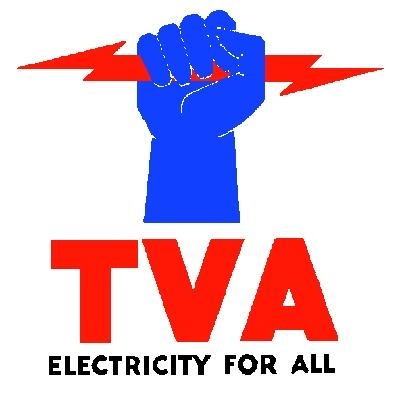The strange politics of TVA privatization

In his latest budget plan released last week, President Obama pitched the idea of selling off the Tennessee Valley Authority (TVA), the federally owned and self-financing corporation that provides electric power to 9 million customers in Alabama, Georgia, Kentucky, Mississippi, North Carolina, Tennessee, and Virginia.
"Reducing or eliminating the Federal Government's role in programs such as TVA, which have achieved their original objectives and no longer require Federal participation, can help put the Nation on a sustainable fiscal path," Obama's budget proposal states. The administration estimates that selling the agency could reduce the federal deficit by as much as $25 billion.
Scroll below to listen or read along with this article.
Created by congressional charter during the Great Depression as a way to modernize the impoverished Southeast and boost its economy by providing affordable electricity, TVA has often been criticized for being a socialist enterprise. President Dwight Eisenhower once called the New Deal agency an example of "creeping socialism" and said he'd like to sell it off.
You might imagine that Eisenhower's fellow Republicans who dominate Southern politics today would agree. But as history has shown, the politics surrounding TVA are not so predictable.
Sen. Barry Goldwater discovered that while running for president in 1964. Besides his home state of Arizona, the Republican won just five other states, all in the South: Alabama, Georgia, Louisiana, Mississippi and South Carolina. Yet he posted big losses in Kentucky as well as Tennessee, despite that state's strong Republican Party.
Why? Historians attribute Goldwater's loss in Tennessee at least in part to his attacks on TVA as socialist and to his calls for selling off the agency, which was popular across the political spectrum.
And it remains so today, as President Obama is discovering through the reaction to his proposal.
Sen. Lamar Alexander (R-Tenn.), called it "one more bad idea in a budget full of bad ideas," raising concerns that privatization could lead to higher electricity rates. U.S. Rep. John J. Duncan Jr., another Tennessee Republican, said it was "something that has been proposed in the past and been determined to be a very bad idea."
Less surprisingly, the privatization plan is also meeting criticism from the progressive end of the spectrum. Stephen Smith, executive director of the Southern Alliance for Clean Energy, pointed out that divestiture would not lead to savings for taxpayers, who would have to assume the burden now carried by ratepayers to fund other TVA functions such as dam safety and flood control.
He also noted that the idea of selling TVA raises ethical issues:
First, most of the land owned by TVA was consolidated by eminent domain from private citizens to be held and managed for the public good. Secondly, Tennessee Valley citizens, through their power distributors, have paid hundreds of millions of dollars in rates over the years and should have some equity share in the power assets that TVA currently owns.
In the end, Smith doesn't believe TVA will be sold.
"I truly believe that Obama put this in there just to show that government has an important role to play,” he told the Knoxville News Sentinel. “If Ron Paul were president and this was in his budget, I would be worried."
Tags
Sue Sturgis
Sue is the former editorial director of Facing South and the Institute for Southern Studies.
